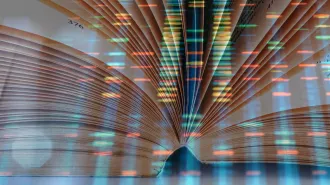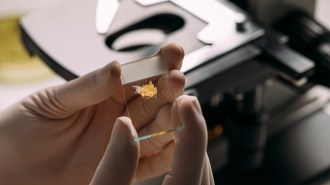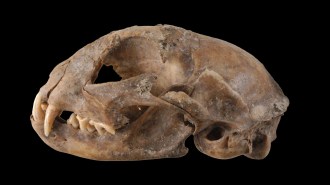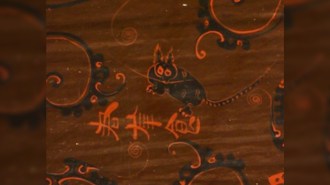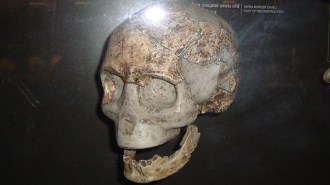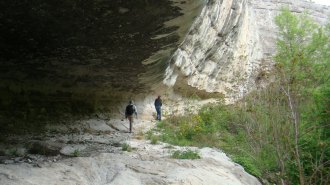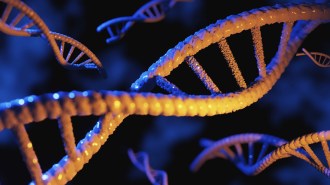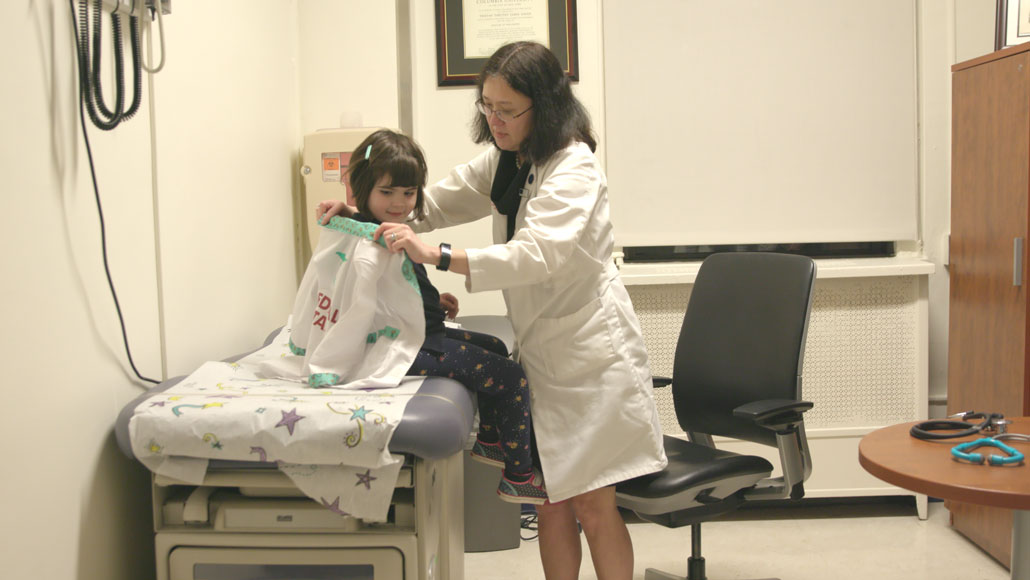
Geneticist Wendy Chung helps her patient Susannah put on a doctor’s lab coat. Susannah suffers from a rare genetic disease, as detailed in a new documentary about the history of genetics.
© The Gene: An Intimate History
The genetic code to all life on Earth, both simple and complex, comes down to four basic letters: A, C, T and G.
Untangling the role that these letters play in life’s blueprint has allowed scientists to understand what makes everything from bacteria to people the way they are. But as researchers have learned more, they have also sought ways to tinker with this blueprint, bringing ethical dilemmas into the spotlight. The Gene, a two-part PBS documentary from executive producer Ken Burns airing April 7 and 14, explores the benefits and risks that come with deciphering life’s code.
The film begins with one of those ethical challenges. The opening moments describe how biophysicist He Jiankui used the gene-editing tool CRISPR/Cas9 to alter the embryos of twin girls who were born in China in 2018 (SN: 12/17/18). Worldwide, critics condemned the move, claiming it was irresponsible to change the girls’ DNA, as experts don’t yet fully understand the consequences.
“This moment heralded the arrival of a new era,” narrator David Costabile says. “An era in which humans are no longer at the mercy of their genes, but can control and even change them.”
The story sets the stage for a prominent theme throughout the documentary: While genetics holds incredible potential to improve the lives of people with genetic diseases, there are always those who will push science to its ethical limits. But the driving force in the film is the inquisitive nature of the scientists determined to uncover what makes us human.
The Gene, based on the book of the same name by Siddhartha Mukherjee (SN: 12/18/16), one of the documentary’s executive producers, highlights many of the most famous discoveries in genetics. The film chronicles Gregor Mendel’s classic pea experiments describing inheritance and how experts ultimately revealed in the 1940s that DNA — a so-called “stupid molecule” composed of just four chemical bases, adenine (A), thymine (T), cytosine (C) and guanine (G) — is responsible for storing genetic information. Historical footage, in Burns’ typical style, brings to life stories describing the discovery of DNA’s helical structure in the 1950s and the success of the Human Genome Project in decoding the human genetic blueprint in 2003.
The film also touches on a few of the ethical violations that came from these discoveries. The eugenics movement — in both Nazi Germany and the United States in the early 20th century — as well as the story of the first person to die in a clinical trial for gene therapy, in 1999, cast a morbid shadow on the narrative.
Interwoven into this timeline are personal stories from people who suffer from genetic diseases. These vignettes help viewers grasp the hope new advances can give patients as experts continue to wrangle with DNA in efforts to make those cures.
In the documentary’s first installment, which focuses on the early days of genetics, viewers meet a family whose daughter is grappling with a rare genetic mutation that causes her nerve cells to die. The family searches for a cure alongside geneticist Wendy Chung of Columbia University. The second part follows efforts to master the human genome and focuses on Audrey Winkelsas, a molecular biologist at the National Institutes of Health studying spinal muscular atrophy, a disease she herself has, and a family fighting to save their son from a severe form of the condition.
For science-interested viewers, the documentary does not disappoint. The Gene covers what seems to be every angle of genetics’ history — from the ancient belief that sperm absorbed mystical vapors to pass traits down to offspring to the discovery of DNA’s structure to modern gene editing. But the stories of the scientists and patients invested in overcoming diseases like Huntington’s and cancer make the film all the more captivating.
